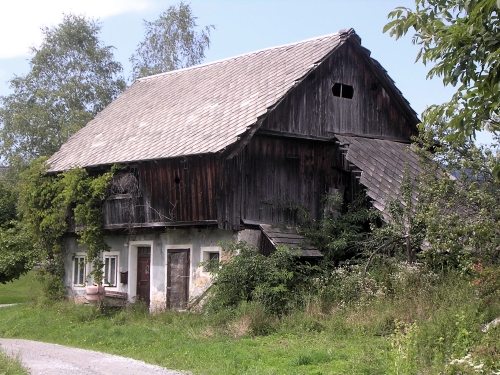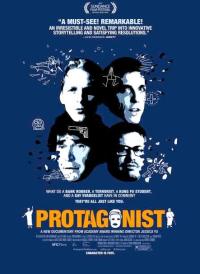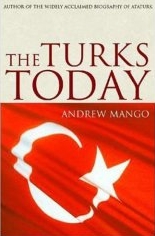 hat normalerweise das jahr. wir leben damit, so schlecht und recht. viele bloggen, manche vertrauen auf sich und ihre kamera und machen mehr daraus: ein fotoprojekt voll narzistischer verirrungen etwa. jeden tag eine peinlichkeit, 365 mal. wer hätte nicht gern gewusst, wie red mare am 2. november im hot tub ausgesehen hat, oder texas mummy am 247. tag morgens. wenn das private und intime öffentlich wird, kann meistens nicht nur der voyeurismus der betrachter aktiviert werden, sondern bleibt mitunter auch ein schaler nachgeschmack zurück. kann der bartwuchs von bearded jon nicht auch unappetitlich sein? wen interessiert, was tonbel für ihren urlaub packt? auch the truth is hidden ist ein voyeuristischer grenzfall.
hat normalerweise das jahr. wir leben damit, so schlecht und recht. viele bloggen, manche vertrauen auf sich und ihre kamera und machen mehr daraus: ein fotoprojekt voll narzistischer verirrungen etwa. jeden tag eine peinlichkeit, 365 mal. wer hätte nicht gern gewusst, wie red mare am 2. november im hot tub ausgesehen hat, oder texas mummy am 247. tag morgens. wenn das private und intime öffentlich wird, kann meistens nicht nur der voyeurismus der betrachter aktiviert werden, sondern bleibt mitunter auch ein schaler nachgeschmack zurück. kann der bartwuchs von bearded jon nicht auch unappetitlich sein? wen interessiert, was tonbel für ihren urlaub packt? auch the truth is hidden ist ein voyeuristischer grenzfall.sauseschritt kann wohl den sammeltrieb verstehen, der sich in einem projekt wie 365 tage konkretisiert, nur, muss es immer selbstdarstellung sein? manchmal, ewa am 250. tag von julsatmidnight gehts auch völlig schief. aber toys, ja, toys, damit kann sich auch sauseschritt abfinden. danke, nina theevilone !!!

wer immer auch die afrikanische sicht auf oberösterreich in der filmsatire fest des huhnes genossen hat, dem sei nunmehr auch empfohlen, ein deutsches dorf aus der sicht eines pakistanischen ethnologen zu sehen. diesmal keine satire, sondern in echt. dem ethno::log verdankt sauseschritt beide hinweise, letzteren auf das wirtschaftsmagazin brand eins (GER):
(...) Viele aus dem Dorf meiden Haas. Er passt nicht in ihr Bild von Ordnung und Sauberkeit. Chaudhary hatte damit nie ein Problem. Er kaufte seine Milch immer bei Haas. "Das ist ein Bauernhof", sagt er. "Da gibt es Dreck. Aber ich finde diesen Dreck nicht dreckig." In den Augen Chaudharys erscheinen dagegen manche Leute als schmutzig, die äußerlich adrett und sauber sind. Als Pakistani hat er unterschiedliche Vorstellungen von Sauberkeit und Schmutz. Das Unreine kann nie sauber sein.
Ein paar Leute in seiner Wohngemeinschaft in Heidelberg, die waren dreckig. Sie hatten häufig lauten Sex, kamen aus dem Bett direkt in die Küche und schmierten sich Brötchen, ohne sich vorher zu waschen. Auch nach dem Pinkeln wuschen sie sich nicht, "wie viele Männer in Deutschland". Und sie machten immer ein paar Spritzer auf den Boden. Unterhosen wurden zusammen mit den Küchentüchern gewaschen. "Hygienisch bestimmt unbedenklich, aber unrein. Das ist in Pakistan genauso unmöglich, wie es für Deutsche wäre, Meerschweinchen zu essen. Es gehört doch auch kein Sperma auf eine Tischdecke." (...)
 dem genderblog hat sauseschritt eine filmankündigung entnommen: protagonist von jessica yu. großzügig interpretiert das genderblog den streifen als dokumentarfilm, der sich mit männlichkeitskonzepten befaßt. nun, das mag so stimmen, nur regisseurin jessica lang sieht das (ENG) etwas weiter, wengleich der untertitel fragt: what makes a man a hero?
dem genderblog hat sauseschritt eine filmankündigung entnommen: protagonist von jessica yu. großzügig interpretiert das genderblog den streifen als dokumentarfilm, der sich mit männlichkeitskonzepten befaßt. nun, das mag so stimmen, nur regisseurin jessica lang sieht das (ENG) etwas weiter, wengleich der untertitel fragt: what makes a man a hero?(...) PROTAGONIST explores extremism through contrasting stories of personal revelation. The film features four individuals who have been devoted to personal odysseys - a cause, a quest, an ideal - to the point of total consumption. At first glance the characters appear disconnected: a former German terrorist, an "ex-gay" evangelist, a bank robber and a martial arts student. But as their stories unfold, one starts to see the parallels between the uncommon, common experience of these four men. Each character embarks on a journey for valid reasons, only to find himself so deeply embedded in the cause that he becomes the opposite of what he had intended. He is blind to this fact, though, until the forces of fate and character boil and distill to a single moment of dark epiphany. In telling this echoing story, the film asks: what is the path to extremism? (...)
der fim wurde im rahmen des sundance fim festivals 2007 (ENG) gezeigt. einer der vier beschriebenen charaktere der deutsche terrorist hans-joachim klein.
 little, sauseschritt assumes. isn´t our mind full of stories, anecdotes, prejudices and images, which do add to a half true, half wrong perception of this country and its history ?
little, sauseschritt assumes. isn´t our mind full of stories, anecdotes, prejudices and images, which do add to a half true, half wrong perception of this country and its history ? when sauseschritt strolled through the ambient area of atatürk airport in istanbul, he found this book in a store and hoped that it may help him to understand turkish society more deeply. he was irritated by the title of the book, though. why concentrate on turks only and not on all of turkey?
to be honest: sauseschritt expected much and found only little. who ever will wish to find in depth analyses on turkeys historical, economic, social and political condition may try to find it somewhere else. andrew mango only offers a collection of thoughts, opinions, statements and figures, which in themselves may be correct and good to know. nevertheless, sauseschritt missed a concise analyses, thoughtful interpretation and conclusions.
on the other hand we learn from mango´s book that military law can be useful, the genocide of the armenians was provoced by themselves, leftist parties always create problems and IMF programmes produce impressive results, etc. thanks a lot, mr. mango, we have to listen to these kind of lectures all the time.
(...) And last but not least, the government’s decision to freeze prices, which has been called the legacy of Soviet past by quite a number of economists, appears to be in line with the global trend. Let alone Bangladesh, Venezuela, Egypt, Jordan, China and Morocco, even Japan’s biggest Aeon chain store froze the prices for 100 items, including the bread, till this year end (...)
For a comprehensive overview on the current world food crises and its implications for countries in transition, see also the german online magazine telepolis (GERM):
(...) Während die Vorräte an Grundnahrungsmitteln auf einem [extern] 25jährigen Tiefstand sind, kann die diesjährige Ernte nach der FAO gerade den Verbrauch decken. In [extern] 26 Ländern ist mit einer Lebensmittelknappheit zu rechnen, so dass Hilfe von außen notwendig ist. Grund dafür sind lange Dürren bzw. Überschwemmungen, aber auch Konflikte. Betroffen sind vor allem afrikanische Länder (21), aber auch Nordkorea, Indonesien, Nepal, Afghanistan und der Irak. "Lebensmittelunsicherheit" stellt die FAO in Teilen von Bangladesch, Pakistan, Sri Lanka und Timor fest, aber auch in Moldavien und Tschetschenien. In Lateinamerika trifft es Länder, die unter Hurrikans wie Nicaragua, Jamaica oder die Dominikanische Republik gelitten haben (...)

sometimes good things happen and the world seems to be a rational place. when sauseschritt searched a pack of peanuts in his fridge to watch the news in his hotel in astana, he found: condoms ..... they are part of the standard room equipment.
a world bank report analyses:
(...) The Eastern Europe and Central Asia Region (ECA) is experiencing one of the world’s fastest-growing HIV/AIDS epidemics. According to UNAIDS, in 2005, 270,000 people in ECA became newly infected with HIV. This brings the number of people living with HIV/AIDS to approximately 1.6 million, a number that has increased 20-fold in less than 10 years. An estimated 62,000 people lost their lives to HIV/AIDS this year alone.
The majority of people living with HIV are in the Russian Federation and Ukraine, where the combination of injecting drug use and sex work is fuelling the epidemic.
The patterns of the epidemic are changing in several countries, with sexually transmitted HIV cases making up a growing share of new diagnoses, for example in Kazakhstan, Belarus and Moldova. Across the region, young people are disproportionately affected, with an estimated 75 percent of reported infections between 2000 and 2004 in those under the age of 30 (...)


